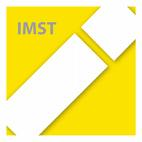Universität Klagenfurt
Reference centre

Universität Klagenfurt
Sterneckstraße 15
A-9010 Klagenfurt
Austria
Contact person
Dr. Isolde Kreis
Universität Klagenfurt
Sterneckstraße 15
A-9010 Klagenfurt, Austria
Phone: +43 2700 6135
E-mail: Please enable JavaScript to reveal the Email address
Universität Klagenfurt - short overview
The Institute of Instructional and School Development (IUS) of the Klagenfurt University is an Austrian Educational Competence Centre (AECC). Its field of operation is the development of and research on educational practice, schools and educational systems. It incorporates the derived insights in teaching and counselling. A key issue is the interrelation between research and teacher education.
Teachers, teacher educators and other contributors to the field of education are supported in their professional development by innovative programmes. These interventions are evaluated and investigated. The insights gained are communicated to the national and international community of educators and educational researchers.
The support in the development of professionalization is considered a reflective process. This implies and at the same time enhances self-monitoring and individual responsibility. Diversity, sustainability and reflection are regarded as principles that are as important as cooperation and networking among the persons and institutions involved in any developmental process.
This results in an interdisciplinary mode of operation; the IUS is open for different scientific paradigms. In addition to classical qualitative and quantitative research, we foster action research. The discussion about internal and external points of view is regarded as a basic presupposition for learning in social systems. Accordingly, great importance is attached to an open dialogue between academic research, school authorities and practitioners.
For further information see: http://ius.uni-klu.ac.at/english.php
Activities within the Fibonacci project
The Fibonacci activities in Austria will be closely tied in with our experiences with IMST. The consultations and discussions with other Centers will rest foremost on the expertise we were able to acquire while running the IMST project for the last 10 years.
However, Fibonacci allows us to increase our scope in working with teachers; building on the existing regional networks and in collaboration with them, we reach out to 25 classrooms located in two regional networks (and even more specific, in three districts), to foster inquiry based learning in the classroom practices of those teachers. In that, we are again drawing on our experience of supporting teachers to take an action research stance at their own classroom practices. We will guide them to look at the implementation of inquiry based learning in their classrooms, or offer them materials and support to install such practices.
Other related projects

The IUS conducts the national large-scale project IMST (Innovations in Mathematics, Science and Technology Teaching) which aims at improving instruction in mathematics, science, IT and related subjects. The focus is on students’ and teachers’ learning. The project involves about 5000 teachers across all Austria who participate in projects, attend conferences or cooperate in regional and thematic networks. The IMST-programme Regional and Thematic Networks supports and researches regional networks in all nine Austrian provinces, and three thematic networks. Within the IMST-Fund, teachers put innovative instructional projects into practice and get support in terms of content, organisation and finances. In the programme Examination Culture , teachers reflect their forms of assessment in various seminars. Gender Sensitivity and Gender Mainstreaming are important principles of the project, and their implementation is supported by the Gender Network. In order to investigate the impacts of IMST, evaluation and research is integrated on all levels.
The IUS offers participants of university courses a framework for developing their competencies by collaborating in working on professional problems. They are seen as reflective practitioners and are supported in investigating their professional practice using the methods of action research. Participants and staff are regarded as learners and thus as collaborators in a learning system.
The following courses are designed for teachers and educational staff for pre-service and in-service teacher education in all areas of education (from elementary to tertiary education):
- BINE (Bildung für Nachhaltige Entwicklung) – Education for Sustainable Development – Innovations in Teacher Education
- fBM (Fachbezogenes Bildungsmanagement) – Subject-Specific Educational Management
- PFL (Pädagogik und Fachdidaktik für Lehrer/innen) – Pedagogy and Subject-Specific Didactics for Teachers; this programme comprises the courses PFL-English, PFL-ArtHist (Arts, German, History, Music), PFL-Mathematics, PFL-Science (Biology, Chemistry, Physics) and PFL-Elementary Education and Inclusive Education.
- Psychoanalytic Observational Studies (Persönlichkeitsentwicklung und Lernen), offers the degree of a Master of Arts in Psychoanalytic Observational Studies – MA.POS
- ProfiL (Professionalität im Lehrberuf) – Professionalization for Teachers, offers the degree of a Master of Arts (Education and School Development) – MA
